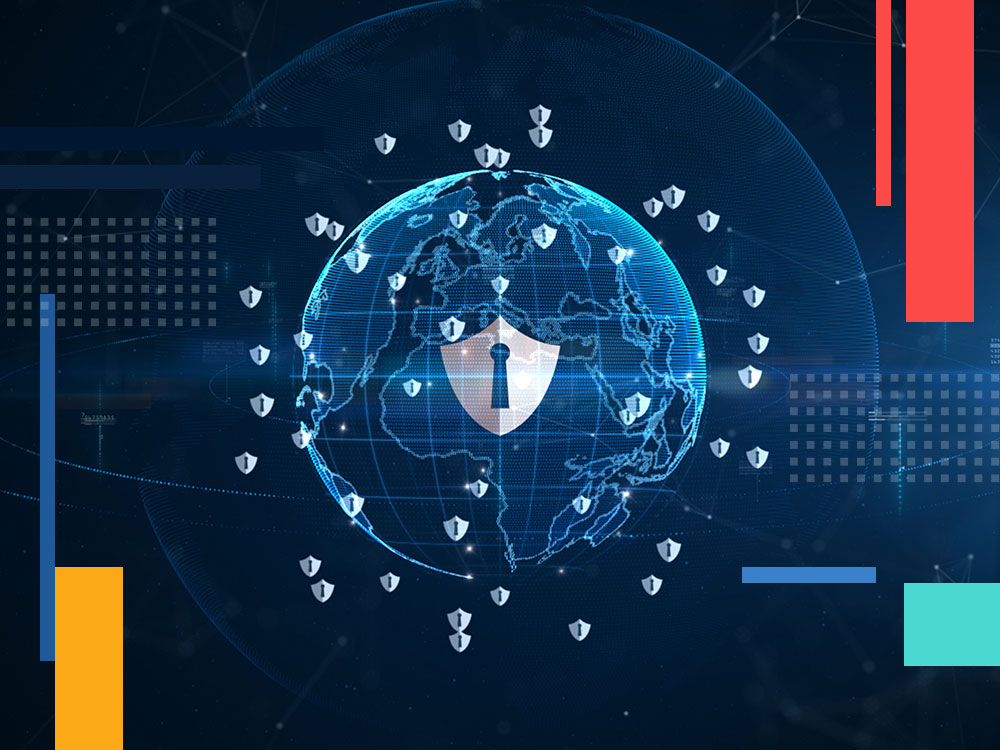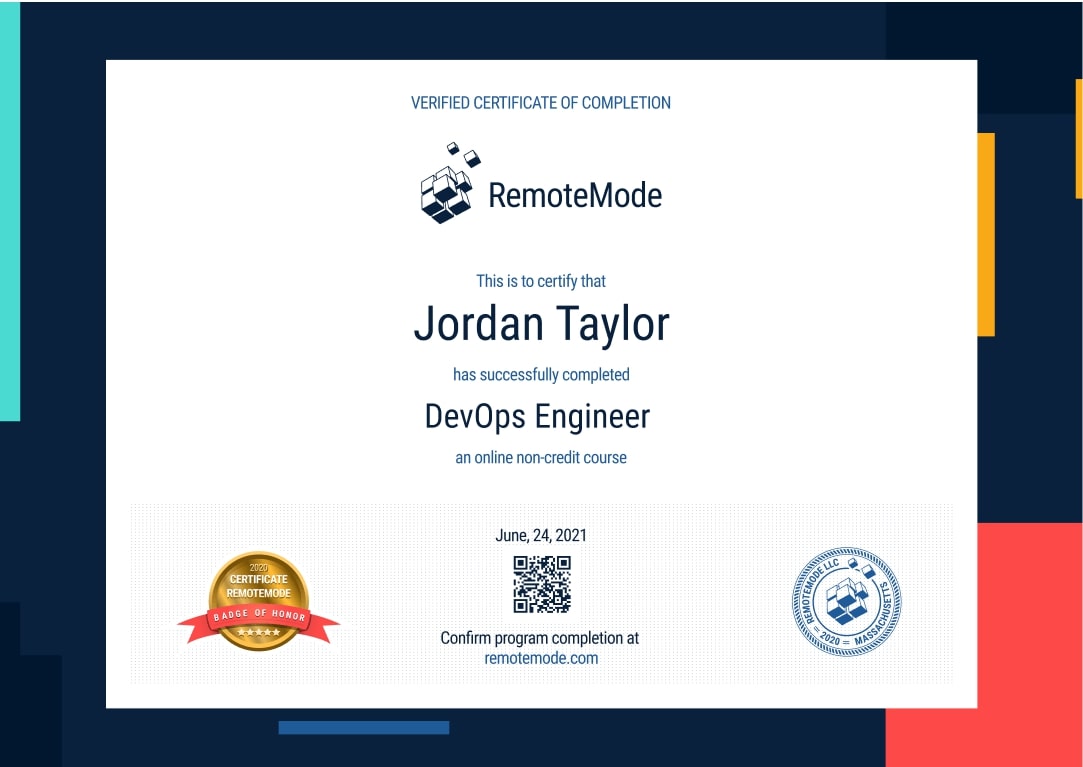Become a Security Specialist
Strategically secure the networks and computer systems that you look after. Identify threats and potential holes in security systems and work to fix them preemptively. Define standards, upgrade hardware, secure data. In an age where nobody deletes files but everyone demands maximum protection, security specialists are necessary for keeping our digital world running smoothly.
- 6-month long course
- 304 lessons
- 6 hours a week
- 152 hours of instruction



Mission Forecast for Security Specialists
Landing Zone
Security Specialists are in-demand and must be well trained. As technology becomes more advanced and valuable, the incentive to try and break into it also increases. This increase calls for Security Specialists in great numbers to outwit and keep any malicious actors out of your company’s data. Security Specialists will see one of the largest growths in the next 10 years, a growth of 33% up to 2030.
Mission Objective (Who’s Hiring Right Now)
Security Specialist Overview
Companies often outsource their security to larger companies, but many big companies have a security department of their own. Finding your place as a Security Specialist will not be difficult, as job opportunities continue to grow.
- + 6-month long course
- + 6 hours per week, go at your own pace
- + 304 on-demand lessons
- + 152 hours of learning materials
- + Receive a certificate confirming your training
- + Participate in real-life Virtual Lab projects
- Setup and maintain a security system.
- Manage employee login information and in-building access.
- Field security questions and ensure security.
- Train employees how to properly secure their data.
- Identify holes in current systems and analyze how to fix them.
- Protect networks and maintain them.
Prepare for Liftoff
Forensic Investigator
Now more than ever, the discipline of Forensic Science is at its ripest and most advanced state. Through the innovations in computer technology, this facet of Law Enforcement has experienced the greatest deal of change, helping the entire discipline advance further.
This course discusses the basics and components surrounding investigations conducted through Computer Forensics.
Course Beneficiaries
The course was created for the benefit of the following professionals:
- Individuals from Law Enforcement wanting to expand their skill set to transition into Criminalistics
- Information Technology specialists who want to penetrate Law Enforcement through a field they are familiar and interested in
- Information Technology graduates who are thinking of building a career in the field of Criminology or Criminalistics
- Forensic scientists who would want to advance in their discipline through technological advancement
Prerequisites
For individuals wanting to be a part of the program, it is recommendable that they have the following credentials:
- Experience working in the field of Forensic Science for at least a year or so
- Law enforcement officers in Criminalistics or within any field related to it
- Working knowledge of Software Development and Computer Hardware
- Experience in working as an Information or Computer Technology specialist or as a Software Developer
Part 01 of 10: Computer Forensic Basics
This segment details what Computer Forensics is and its importance. Through this segment, learners would be made to understand that the application of computer investigation and analysis techniques would help the interest of collecting potential evidence that would assist in solving a case or at least be admissible in any court of law.
It is also expounded in the course that evidence derived from forensic methods might be of use in the following:
- Criminal Litigations
- Companies seeking proof of abuse of authority, embezzlement or theft of any kind
- insurance companies seeking evidence of insurance fraud
Part 02 of 10: The Investigation Process
This segment details the entire investigation process that touches on Forensic Science in the field of Criminalistics. This segment would go into the details of what types of Law Enforcement officers and their ranks are integral to the investigation process and how they fit in Computer Forensics Investigations.
Part 03 of 10: Hard Disks and File Systems
This segment aims at arming learners with the understanding of hard disks and filesystems, given that these are major data storage. The learners would be made to understand that people usually delete their tracks upon committing a crime through a computer so as to prevent any potential traces. This lesson will detail how to recover deleted files of hard disks and analyze filesystems.
Part 04 of 10: Data and Anti-Forensics
This segment discusses the field of Anti-Forensics (also called Anti-computer forensics or counter-forensics). The lesson details how the area of Anti-forensics has become a legitimate field of study along with its subcategories that aim at illustrating the deficiencies in digital forensic procedures.
Part 05 of 10: Operating System Forensics
This segment discusses what Operating System Forensics is. The discussion defines Operating System Forensics as the process of getting useful information from the OS of a PC or a mobile device.
Part 06 of 10: Malware Forensics
This segment details what Malware Forensics is and its relevance in analyzing the different properties of malware to search for culprits and the logic behind their attacks.
Part 07 of 10: Database Forensics
This segment defines what Database Forensics is and how it is conducted. This branch of the field details a study of the databases and significant metadata.
Part 08 of 10: Network and Email Forensics
This segment of the course details what Network and Email Forensics is, how it is conducted, and what the integral facets are in the successful completion of it.
Part 09 of 10: Cloud and Web Forensics
This segment defines Cloud and Web Forensics as an integral subset of network forensics. The discussion goes on to detail why this branch of Computer Forensics had been made into a specialized area.
Part 10 of 10: Mobile and Reports
This segment details what Mobile Forensics is and what processes govern it.

Mission Control
- Stay focused with a mentor’s help and support
- Build a real portfolio with Virtual Lab Projects
- Compete with classmates in a virtual classroom
- Measure your progress with the Activity Tracking Log
- Make sure you get the job with resume help and interview assistance
In Collaboration with
Chart Your Trajectory (304 videos 73 hours)
Certificate of Completion
- Receive a certificate recognized by prevalent companies confirming your training
- Complete real projects in Virtual Labs
- Go at your own pace, learn your way
- Access course videos and materials 24 hours a day
- Take practical quizzes to keep you up to speed
- Classes created and mentored by industry leaders

Grow into a Security Specialist
Help push the tech industry in a way that only security specialists can. Learn the ins and outs of tech, how to properly maintain web services and prevent attacks. Use some of the leading tools to help create programs to fight off hacks and security leaks.
Program Forecast
- 6 months long, 6 hours per week
- 304 lessons in 152 hours
- Learn at your own pace
Virtual Lab
- Real Projects
- Create a working portfolio
- Receive expert feedback and mentoring
Career Services
- Interview preparation
- Resumé assistance
- Help with LinkedIn networking
Request More Information
View pricing and financing options